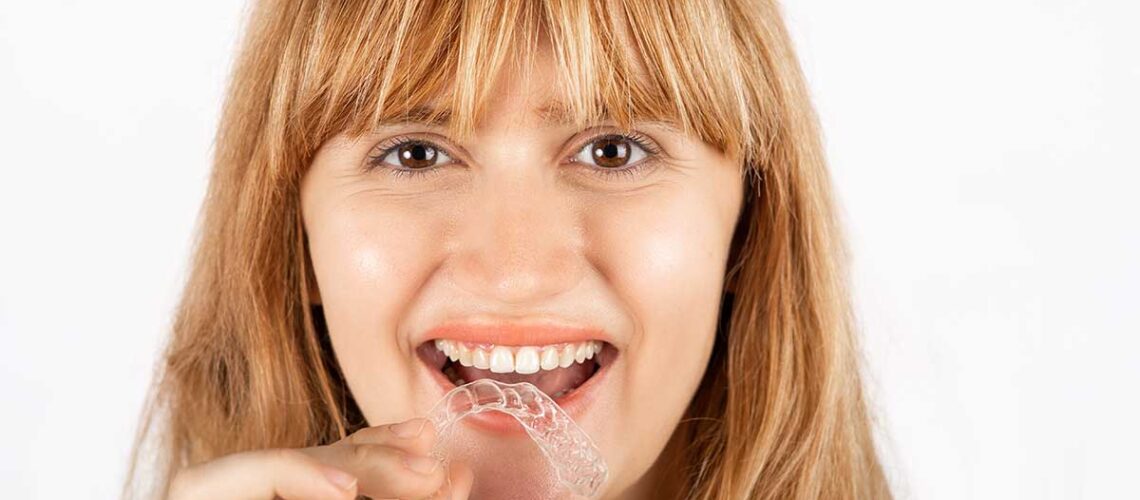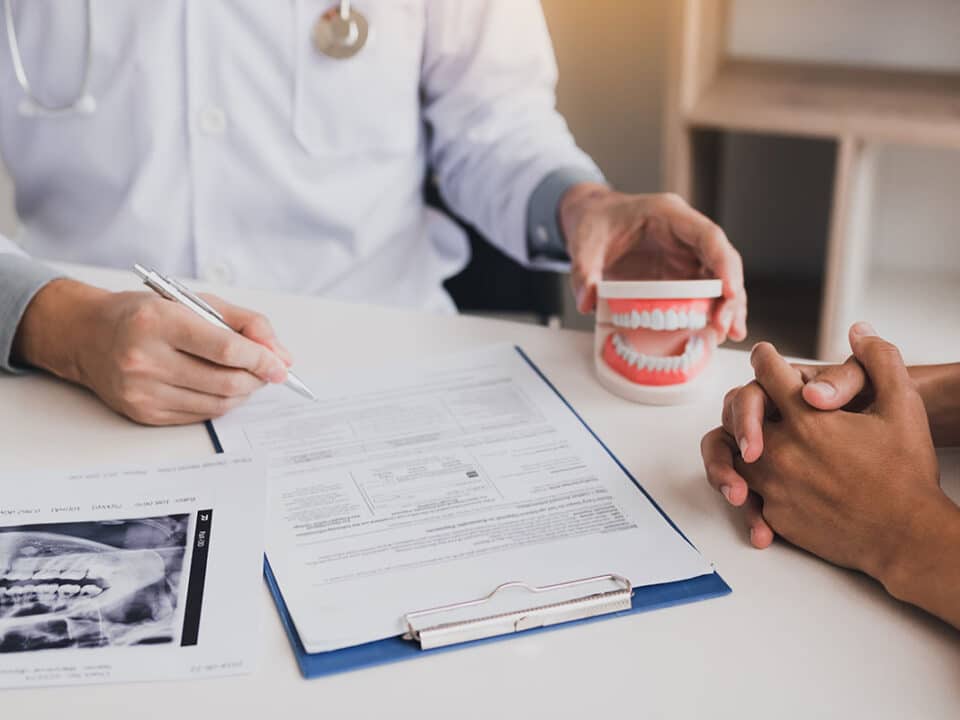The incessant sound and uncomfortable soreness of teeth grinding can be more than just a noisy disturbance; it can be a sign of a common yet troublesome condition known as bruxism. Whether you’ve recently discovered the wear and tear on your teeth or have been enduring the discomfort for years, figuring out how to stop grinding your teeth is essential for your oral health and overall well-being.
In this article, we delve into the world of bruxism and offer a comprehensive guide on how to stop grinding your teeth, providing you with insights, strategies, and expert tips to regain peaceful nights and protect your precious pearly whites.
Table of Contents
What is bruxism?
Bruxism is a common dental condition characterized by the involuntary grinding, clenching, or gnashing of teeth. This can occur during sleep (sleep bruxism) or while awake (awake bruxism). It is often associated with repetitive jaw muscle activity and can lead to a variety of dental problems and other health issues.
The exact cause of bruxism is not always clear, but it can be linked to stress, anxiety, misaligned teeth, and certain medications. Bruxism can result in various symptoms, including tooth damage, jaw pain, headaches, and disrupted sleep patterns. Long-term untreated bruxism can lead to serious dental issues, making it important to address and manage the condition through various treatments and strategies. These may include dental appliances like night guards, stress management techniques, lifestyle changes, and, in severe cases, dental or medical interventions.

Why is grinding your teeth bad?
Bruxism, or teeth grinding, is a troublesome condition with numerous adverse effects that highlight its harmfulness. This involuntary grinding and clenching of teeth can lead to severe dental problems, including tooth damage, enamel erosion, and tooth sensitivity. The constant strain on jaw muscles can result in jaw pain, tension headaches, and even temporomandibular joint disorder (TMJ). For those who grind their teeth during sleep, it can disrupt their rest, causing fatigue and sleep disturbances. Moreover, bruxism can contribute to facial pain, earaches, and tinnitus. Left untreated, it may lead to costly dental restorations and further complications. Perhaps most notably, bruxism is often associated with stress and anxiety, compounding the negative impact on both oral health and overall well-being. Recognizing the harmful consequences of bruxism underscores the importance of seeking proper diagnosis and treatment to prevent further damage and discomfort.
What are the long-term effects of grinding your teeth?
The main long-term damage that teeth-grinding causes will manifest itself primarily as dental damage. Over time, the constant grinding and clenching can cause significant dental damage. This includes the wearing down of tooth enamel, chipping, fracturing, or even loosening of teeth. Other concerns can also develop, such as jaw disorders, headaches, chronic pain and even tinnitus.
If you grind your teeth, you could be at risk of:
Damaging your teeth
The human jaw can exert a maximum bite force of around 125 kg (crazy right?), with the averages being closer to 50 kg for females and 70 kg for males. This large force can damage your teeth over time – causing chipping, fracturing, loosening and wearing down of the tooth enamel. Since most of this pressure is exerted on the back teeth (molars), these teeth will take the brunt of the damage.
Grinding leads to tooth sensitivity
The constant pressure will cause your tooth enamel to erode, and your teeth will become more sensitive to hot, cold and pressure. This can make eating and drinking more difficult and painful.
Teeth grinding is a leading cause of gum recession
It’s not only gingivitis and gum disease that cause your gums to recede – bruxism poses a very serious threat to the health of your gums. The pressure from grinding or clenching causes microtrauma to your gums that leads to irritation and inflammation. Clenching can also compromise blood flow to the gums and cause them to pull back from your teeth, exposing the roots.
Teeth grinding is a common cause of jaw disorders
Prolonged bruxism and the associated pressures contribute to temporomandibular joint disorders (TMJ or TMD), which cause jaw pain, facial discomfort and restricted jaw movement.
Headaches and facial pain are often associated with bruxism
The pressure of grinding and clenching your teeth causes a huge strain on the facial muscles. Tension in the muscles of your face leads to headaches, jaw aches and even ear aches.
Sleep disturbances
Sleep bruxism can disrupt sleep patterns, leading to fatigue, daytime sleepiness, and other sleep-related problems. It’s uncomfortable and almost impossible to stop because your teeth are subconsciously grinding or clenching.
Anxiety & stress
Bruxism is often associated with heightened levels of stress and anxiety, creating a vicious cycle where stress exacerbates the condition, and bruxism, in turn, contributes to more stress. It’s sort of a chicken or egg scenario.
Bruxism can cause ear and hearing problems
The muscles and joints of your jaw are in close proximity the ear canal. This means when these muscles are under constant strain caused by grinding or clenching, it can cause earaches and a ringing in your ears (tinnitus).
If you notice any of these issues starting to appear and know or think you might have bruxism, it’s important to speak to your dentist and get help stopping the grinding and clenching before the damage is done.
What are the causes of teeth grinding?
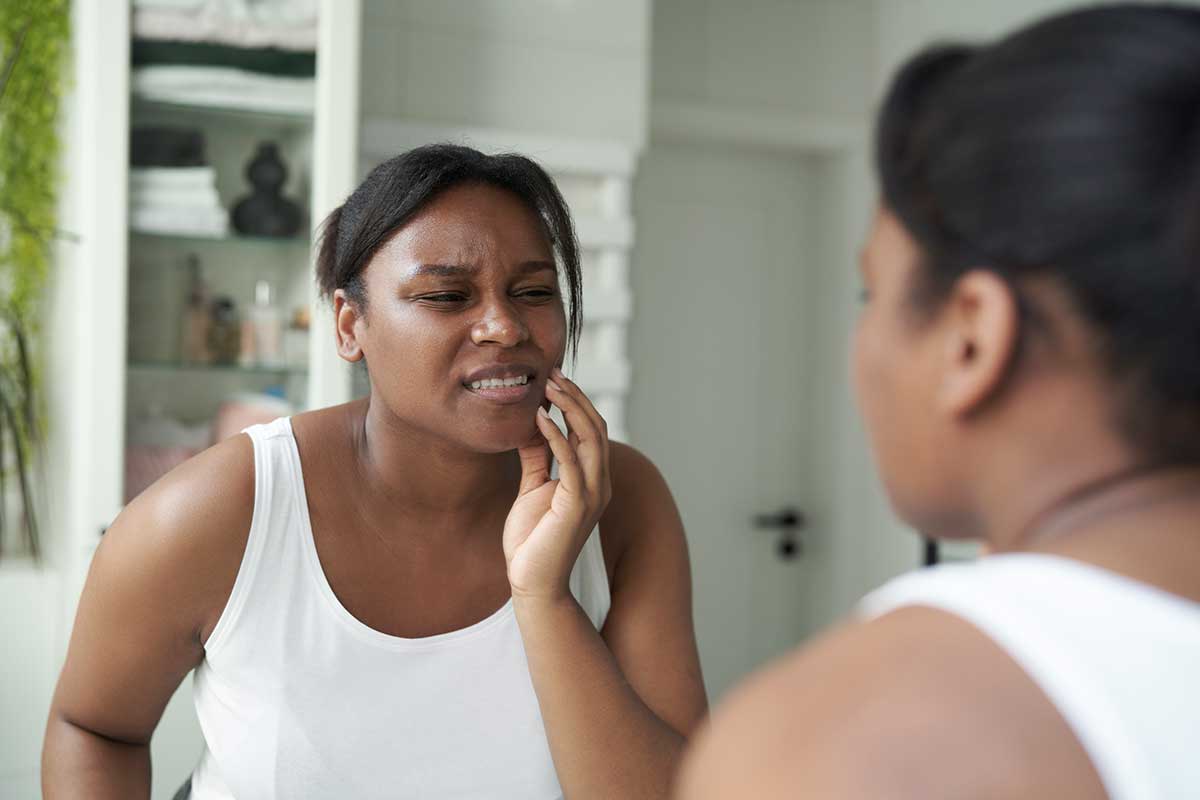
Bruxism has multiple underlying causes, making it a complex condition to pinpoint. Stress and anxiety are commonly associated triggers for bruxism, as heightened emotions can increase muscle tension in the jaw.
Another potential factor is misaligned teeth or an abnormal bite, which can result in an unconscious effort to correct the alignment through grinding.
Lifestyle habits, such as excessive alcohol consumption, smoking, or the use of recreational drugs, may exacerbate bruxism. Sleep disorders like sleep apnea can also contribute, as individuals may grind their teeth in response to disruptions in their breathing during sleep.
Certain medications, particularly those affecting the central nervous system, can induce bruxism as a side effect.
Identifying the specific cause of bruxism is crucial for effective management, as it varies from person to person, and addressing the underlying triggers is key to successful treatment.
How to stop grinding your teeth
Grinding or clenching your teeth, a condition known as bruxism, can harm your dental health and lead to various issues, including tooth wear, jaw pain, and headaches. Finding the right strategy, or combination thereof, is important to protect your teeth, your jaws, and your overall oral health.
Consult a dentist, orthodontist, or a bruxism specialist: If you suspect that you grind your teeth, it’s essential to consult a dentist or a dental specialist, such as an orthodontist or oral surgeon. They can evaluate your condition, determine the severity of the bruxism, and recommend appropriate treatments or interventions. The longer you live with bruxism, the more damage is caused, and the more the habit gets imprinted on your mind.
Wear a nightguard (mouthguard) or splint: Your dentist may recommend a custom-made nightguard or splint that you wear while sleeping. These dental appliances help protect your teeth from the harmful effects of grinding and clenching. Over-the-counter nightguards are also available but may be less effective and comfortable than custom-made ones.
Manage your stress: Bruxism is often linked to stress and anxiety. Finding healthy ways to manage stress, such as practicing relaxation techniques (e.g., deep breathing, meditation, yoga), can help reduce teeth grinding.
Reduce your caffeine or alcohol intake: Avoid or limit the consumption of caffeine and alcohol, as these substances can exacerbate teeth grinding.
Chew gum sparingly: Chewing gum can train your jaw muscles to clench, so avoiding excessive gum chewing is best, especially if you grind your teeth.
Keep your jaw relaxed: Be conscious of your jaw during the day. Try to keep your teeth apart and your jaw muscles relaxed. Avoid activities that encourage clenching, such as biting on pens or pencils.
Position your tongue properly: Place the tip between your front teeth to help train your jaw muscles to relax.
Stay hydrated: Dehydration can contribute to bruxism. Drink plenty of water throughout the day to help maintain proper muscle function.
Dietary adjustments: Avoid hard or chewy foods, especially in the evening. These foods can encourage grinding during sleep.
Behavioural therapy: If stress or anxiety is a significant contributor to your teeth grinding, consider therapy or counselling to address underlying emotional factors.
Medications: Sometimes, your dentist or doctor may prescribe medications, such as muscle relaxants or anti-anxiety drugs, to help manage bruxism. These are typically reserved for severe cases and used with other treatments.
How to prevent tooth damage if you grind your teeth
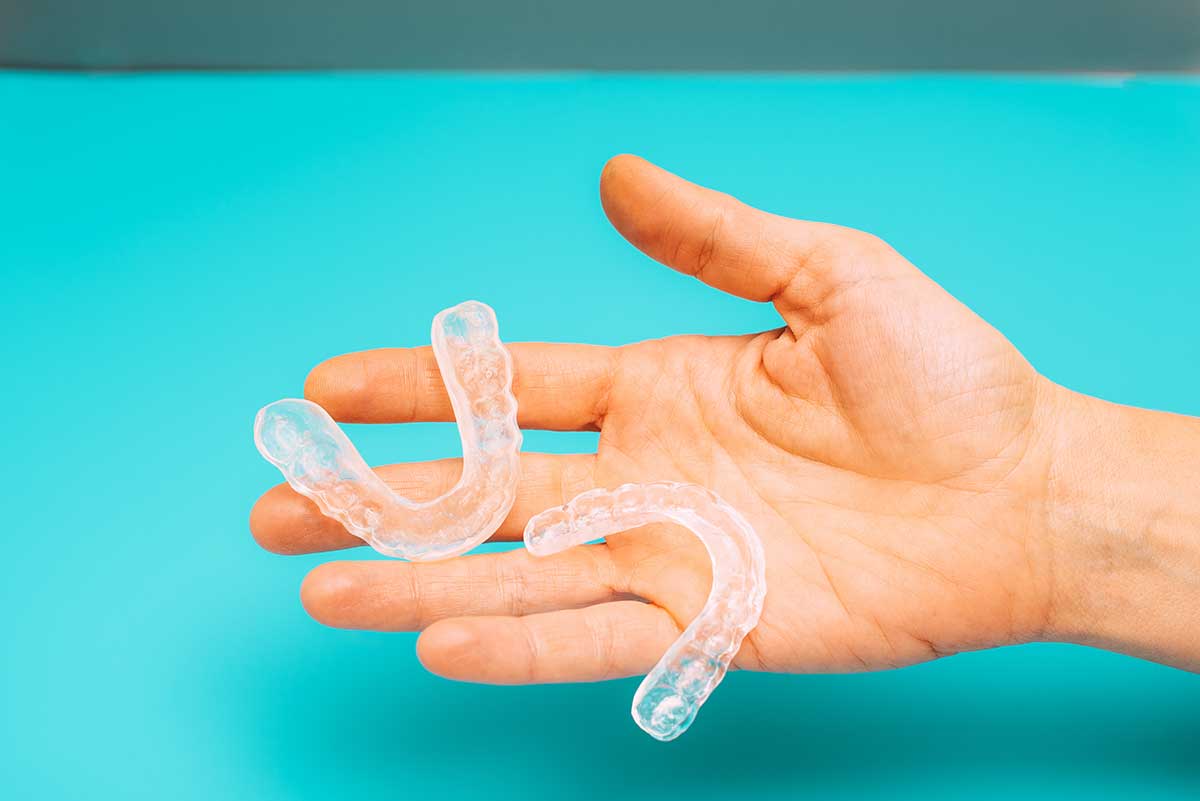
Preventing tooth damage from bruxism, or teeth grinding, involves proactive steps to safeguard your dental health.
A customized night guard or mouthguard, prescribed by your dentist, is often the first line of defence. Worn during sleep, these appliances create a protective barrier, cushioning your teeth and preventing direct contact that leads to wear and tear.
Stress management techniques, like relaxation exercises and counselling, can help mitigate bruxism triggered by anxiety or tension.
Be mindful of lifestyle choices, such as limiting alcohol and caffeine intake, as they can exacerbate grinding. Moreover, regular dental check-ups allow your dentist to monitor your condition and promptly address any emerging issues.
Finally, practicing good oral hygiene, including regular brushing and flossing, helps strengthen your teeth against the effects of bruxism and promotes overall dental wellness.
Do bruxism mouthguards work?
If you suffer from bruxism and subconsciously grind or clench your teeth, then a mouthguard might be the answer. Orthodontists and dentists will typically prescribe a mouthguard to patients who suffer from mild to severe forms of bruxism. This mouthguard is generally worn at night when patients have little mental control over whether or not they grind their teeth.
The main function of the mouthguard is to protect your teeth and gums from damage and wear, however, some patients report that simply wearing the mouthguard lessens their grinding or clenching substantially.
Relaxation techniques for teeth grinding

Relaxation techniques can effectively manage and reduce bruxism (teeth grinding). These methods are free, and you can generally practice them anywhere at any time. It’s important to be cognizant of your bruxism and of your triggers so you can work not only on stopping the grind but heading it off before it starts.
Here are some relaxation techniques that can help:
Deep breathing: Practice deep breathing exercises to calm your nervous system. Inhale deeply through your nose, hold for a few seconds, and exhale slowly through your mouth.
Progressive muscle relaxation: This technique involves tensing and then relaxing different muscle groups in your body to release tension. Start at your toes and work your way up to your head.
Meditation: Regular meditation sessions can reduce stress and promote relaxation, which may help alleviate bruxism.
Yoga: Yoga combines physical postures, breathing exercises, and meditation to reduce stress and promote relaxation.
Biofeedback: Biofeedback therapy helps you become aware of your body’s physiological responses to stress and teaches you how to control them.
Guided imagery: Visualize calm and peaceful scenes to relax your mind and reduce stress.
Aromatherapy: Certain scents, like lavender or chamomile, can be calming and may help reduce stress-related bruxism.
Warm baths: Soaking in a warm bath before bedtime can relax your muscles and create a sense of relaxation.
Massage: Regular massages can help relieve muscle tension and reduce stress.
Stress management: Identifying and managing sources of stress in your life can significantly reduce bruxism. This may involve lifestyle changes, counselling, or therapy.
Mindfulness: Practicing mindfulness techniques can help you become more aware of your body and emotions, allowing you to respond to stress more healthily.
Relaxation apps and videos: Many apps and online resources offer guided relaxation exercises and meditation sessions.
It’s important to note that while relaxation techniques can be helpful, they may not eliminate bruxism, especially if factors like misaligned teeth or sleep disorders cause it.
When to seek dental help for teeth grinding
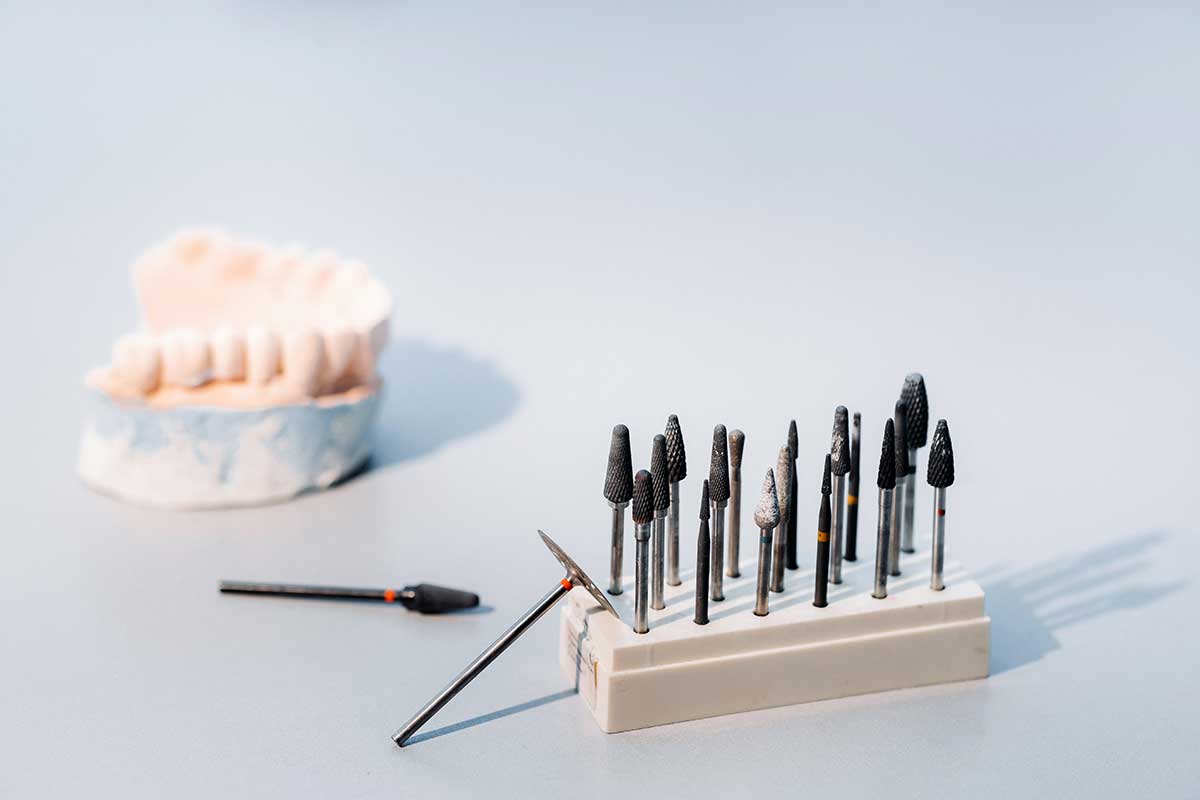
If you suffer from headaches, jaw pain, earaches or tinnitus or notice that you grind or clench your teeth regularly, it would be a good idea to consult your dentist. Getting help and advice for dealing with bruxism is preferable before your teeth get damaged. Your dentist can prescribe you a mouthguard to wear at night, and advise you on how to get rid of harmful bruxism.
More questions about teeth grinding (bruxism)
Does grinding your teeth cause headaches?
Yes, grinding your teeth, also known as bruxism, can cause headaches. The constant grinding and clenching of teeth can lead to muscle tension and strain in the jaw and surrounding facial muscles. This muscle tension can radiate to other areas of the head, including the temples, forehead, and even the neck, resulting in tension headaches.
Additionally, the pressure exerted on the teeth and jaw joints during bruxism can trigger headaches, particularly in the temples and the sides of the head. These headaches may be more frequent and intense for individuals who grind their teeth regularly, especially during sleep.
Does oral hygiene affect teeth grinding?
Oral hygiene practices, such as brushing and flossing your teeth regularly, play a role in maintaining good oral health, but they are generally not a direct cause or solution for teeth grinding (bruxism). However, the oral hygiene can help mitigate the effects of some of the symptoms of bruxism like tooth sensitivity, stress reduction and preventative dentistry.
Can diet affect teeth grinding?
Yes, your diet can influence teeth grinding, also known as bruxism. While it may not be a direct cause, it can exacerbate or contribute to the condition. The following are examples of diet that can affect teeth grinding and clenching:
Caffeine and alcohol: Consuming excessive caffeine or alcohol, especially close to bedtime, can disrupt sleep patterns and potentially worsen bruxism. Limiting the intake of these substances, especially in the evening, may be beneficial.
Nutrition: Nutritional deficiencies, particularly in minerals like magnesium and calcium, can affect muscle function and may contribute to bruxism. Maintaining a balanced diet rich in essential nutrients is important for overall health.
Hydration: Dehydration can lead to muscle tension and cramping, potentially aggravating bruxism. Staying adequately hydrated is important for muscle function.
Can lifestyle affect teeth grinding?
Lifestyle plays a large role in the onset of bruxism in most people. It is a very stress-related condition, and its triggers are often subconscious. This makes lifestyle a major factor in whether you grind or clench your teeth.
Stress and anxiety: High-stress levels and anxiety are common triggers for bruxism. Practices that reduce stress, such as relaxation techniques, exercise, and a balanced diet, can help manage bruxism symptoms.
Bad habits: Chewing on hard objects like ice, pens, or pencils can put additional stress on the teeth and jaw, potentially exacerbating bruxism. It’s important to avoid such habits.
Smoking and recreational drugs: Smoking and using recreational drugs can increase muscle tension and contribute to bruxism. Quitting smoking can help reduce the risk of teeth grinding.
Quality of sleep: Poor sleep hygiene practices, such as irregular and insufficient sleep, can worsen bruxism symptoms. Establishing a regular sleep schedule and creating a relaxing bedtime routine may help improve sleep quality.
Does drug abuse lead to teeth grinding?

Yes, recreational drugs can increase muscle tension and contribute to bruxism.
Stimulant drugs like amphetamines, cocaine, and methamphetamine can increase muscle tension and lead to jaw clenching and teeth grinding.
MDMA or ecstasy is known to cause jaw clenching and bruxism in some users, often referred to as “gurning” or “chewing.” If you’ve ever been to a rave or nightclub and seen people whose jaw just won’t sit still, it will make perfect sense.
Certain antidepressant medications, particularly selective serotonin reuptake inhibitors (SSRIs), can have side effects, including teeth grinding.
Check us out on Facebook and Twitter for daily information about Oral Health from Martindale Dental, or visit our offices in Cambridge, Hamilton, and St. Catharines.
Have more questions?
Please contact us for all inquiries or to book an appointment with one of our convenient clinic locations. We look forward to hearing from you.

